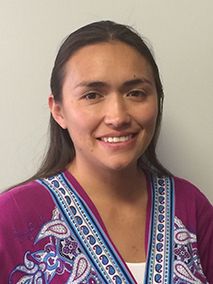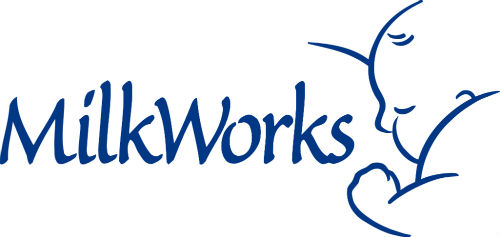Meet Julie Braunsroth, one of Lincoln's culturally diverse CBEs

Julie, where did you grow up?
I grew up in Bogota, Colombia, in South America, one of the largest cities in the world. The city is divided between north and south. The north is where rich people live and the south is where poor people live. I grew up in the south.
My neighborhood was tough. I saw terrible things, like drug use and robberies and riots and murders. It was scary but that is where I grew up. I did not let these bad things define me. I let other things influence me, like my love for Jesus Christ, my family and my community. My parents are two of the people who helped to shape me into who I am today. I greatly admire them.
Tell us more about your family.
My mom and dad did not go to school, but that did not stop them from dreaming. My mom started working when she was four years old. My dad was homeless. They wanted their children to have a different life.
My dad taught himself to read, write and do math. He educated himself so he could run his own business. He opened his own store and paid to send me to a Christian school.
My mom encouraged me to be involved in church and instilled my love for God. I hope to pass this love on to generations to come. I am proud that my husband and I teach our children to know Christ. I believe through His love they will be safe and successful in life.
How did you come to live in Lincoln, Nebraska?
During a very hard time in my life, when my father has just died and I was trying to support my mother and pay my way to college, my sister asked me to help her get signatures for a Christian political party. A riot broke out, and as we were trying to get away, I saw this tall, handsome, green eyed man, who was visiting my country from Nebraska. It was pretty much love at first sight. We married and moved to Nebraska.
I had never heard of Nebraska before I moved here one cold January day eight years ago. I didn’t understand what “snowing” really meant. I didn’t speak English and I couldn’t drive. Adjusting to a new life was hard, but my husband’s family and my church helped me. Now I have a passion to help other women going through the same experience.
Why are you so passionate about helping other mothers breastfeed their babies?
Many women who speak Spanish come from a culture where breastfeeding is what you do. It is normal for new moms to spend 40 days in bed after having a baby. Your mom and grandma come to take care of you and your baby. BUT…it is different in American culture. There is not as much support for breastfeeding.
Breastfeeding has physical, financial, and emotional benefits. But even with all these benefits, many moms say the feeling of making a connection with their babies is the best part of breastfeeding.
For some moms, breastfeeding may not be as magical as they might think. Sometimes there is pain or not enough milk. There are different challenges at different stages. These difficulties pressure moms to give up. That is why moms need other moms.
As a Community Breastfeeding Educator, my job is to be out in the community, helping moms be successful. Many of the moms are new to this country, just like I was eight years ago.
My support group gives moms a place to come where they get to say and hear, “That happened to me, too.” Being part of the group lets them see that the situations they are going through are normal. Getting this group of moms together is very important. I feel because of sharing life and our stories with each other, we learn to be better moms, better people and better citizens.
How can everyone help moms to feel supported when it comes to breastfeeding?
MilkWorks has seven Community Breastfeeding Educators, like me, who go out in the community to help moms and babies. The women are Chinese, Vietnamese, Sudanese, Karen, African American and Hispanic. MilkWorks helped us to learn more about breastfeeding, but we bring the expertise when it comes to our cultures. A lot of times the moms we work with feel like outsiders.
Everyone can help these moms feel more welcome in our community. Smile to them. Don’t just stare if a mom is breastfeeding. Say something nice about their baby. Together we can all make our community healthier for moms and babies. That is my dream.
